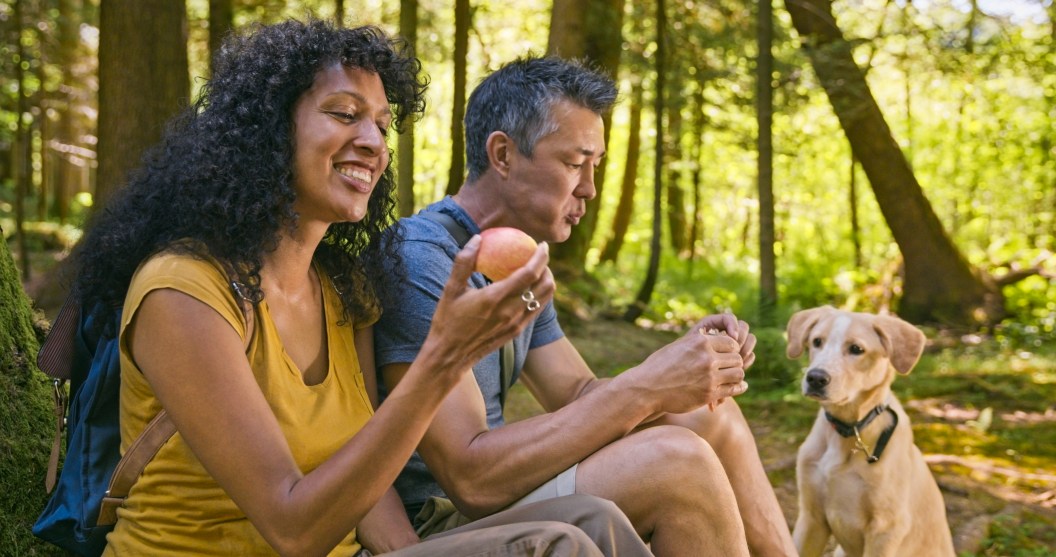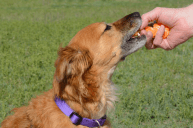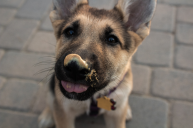It's tempting to give your dog scraps of food off your table, but human food is not always beneficial to a dog's health. Not all vegetables are safe; and some, such as celery, are downright dangerous. While fruit may seem like a great option, some fruit is too high in sugar to have health benefits, and others, like grapes, are toxic to pups. But can dogs eat apples? Can they be a crunchy treat for our pups or even a element of a dog's raw-food diet?
We spoke with Dr. Danny Cox, the chief veterinary medical officer of the telehealth pet app Petzey, to see if the human health benefits of apples cross over to our four-legged friends.
Can Dogs Eat Apples?
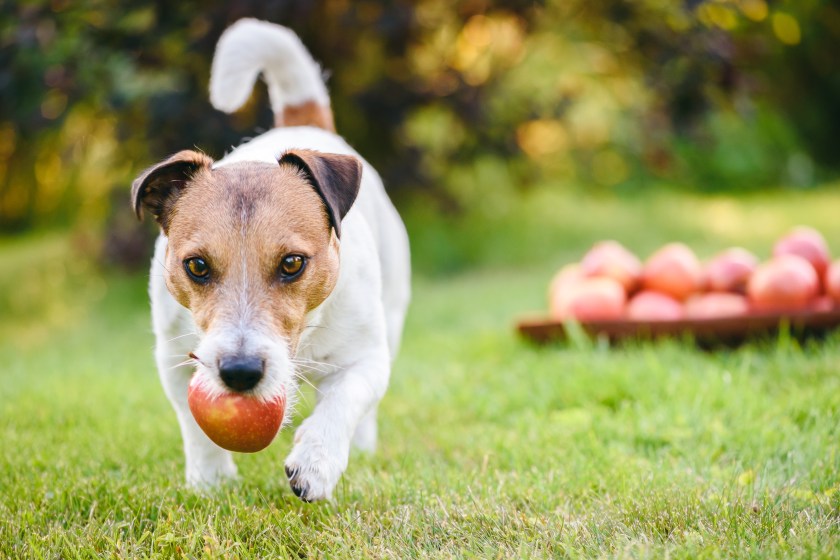
Getty Images, Alexi_tm
Yes! As it turns out, eating apples isn't just healthy for humans. Apples can be a healthy snack for our pups, says Cox. Apples are quite healthy, containing immune system-boosting antioxidants, vitamin A, vitamin C, fiber, potassium, and calcium. That said, if your dog is already eating a balanced diet, they should have everything they need for a healthy immune system.
Much like other foods, apples should be offered in moderation. The fruit is high in sugar, so it can negatively affect some dogs' teeth and even overall health; for example, if your dog is on a special diet, the added sugar may counteract their current needs. Before giving your dog something new, you should check with your veterinarian.
If apples are a new food for your dog, remember to watch them closely. Like people, dogs can be allergic to foods, and apples are no exception. "If you notice symptoms like itching, swelling, or difficulty breathing after your dog eats an apple, consult a veterinarian immediately," Cox says.
What's the Best Way to Feed a Dog an Apple?
While giving your dog the whole apple may be tempting, it's not the best method. Apple cores should be removed, as they're a choking hazard. Take out the apple seeds, too.
"Make sure you're removing the seeds because they can contain small amounts of cyanide, which isn't good for dogs," Cox says. "If a dog consumes a few seeds accidentally, there's typically no need for panic, but consistently feeding them large quantities of seeds over time could be problematic."
Offer apples to your dog in small pieces. Larger chunks can cause your dog to choke or may not be appealing. If your dog isn't a fan of the apple skin, you may find you'll have to peel it first to make the flesh palatable. You can always add a little natural peanut butter to those apple slices to make them extra-appealing.
Are There Any Risks of Feeding Apples to a Dog?
You may want to hold off on feeding apples or fruit of any kind to puppies—their young digestive systems may not be ready for fruit sugars, and they may end up with an upset stomach.
Some dogs may not like the texture of an apple, so you can also make or offer applesauce, but if you go with with store-bought, read the ingredients carefully: Preservatives, added sugars, and artificial sugars such as xylitol can be risky or poisonous for your pup. Also, avoid feeding your dog apple pie; ingredients such as nutmeg can upset their stomachs.
If your pup gets into a bag of apples without your knowledge, any large quantity of seeds consumed may be cause for concern. Symptoms of cyanide poisoning include panting, difficulty breathing, and dilated pupils. If your furry friend exhibits any of these signs, call your veterinarian immediately.
What Fruits and Veggies Can a Dog Eat?
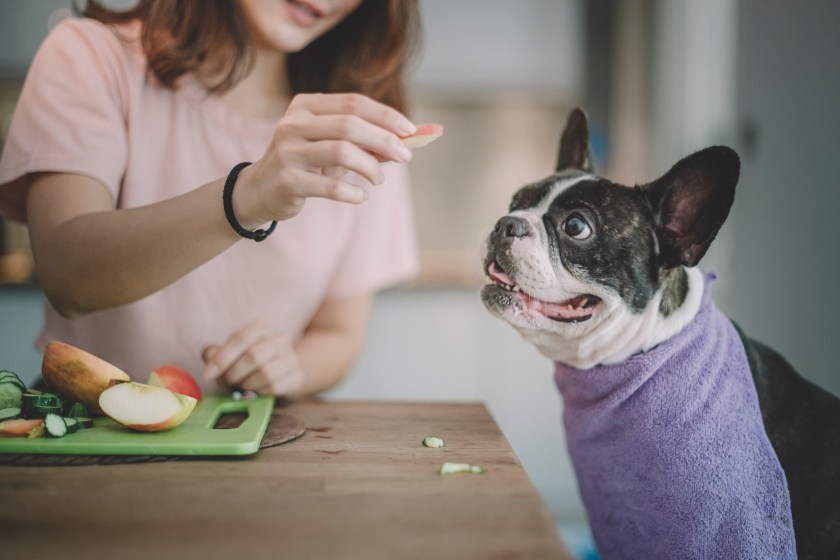
Getty Images, Edwin Tan
Dog owners should consider most fruits and vegetables as snacks to supplement a dog's diet or be added as a topper to dog food. Feed them in moderation, as fruit can cause some gastrointestinal upset. These fruits and vegetables are considered safe for dogs to eat:
- Bananas
- Blueberries
- Cantaloupe
- Watermelon
- Carrots
- Pumpkin
- Cucumbers
- Green beans
- Sweet potatoes
However, don't forget that these healthy treats; if given in excess, could cause some digestive upset.
READ MORE: Can Dogs Eat Hot Dogs? This Mystery Meat Has Mystery Ingredients That Can Pose a Problem
